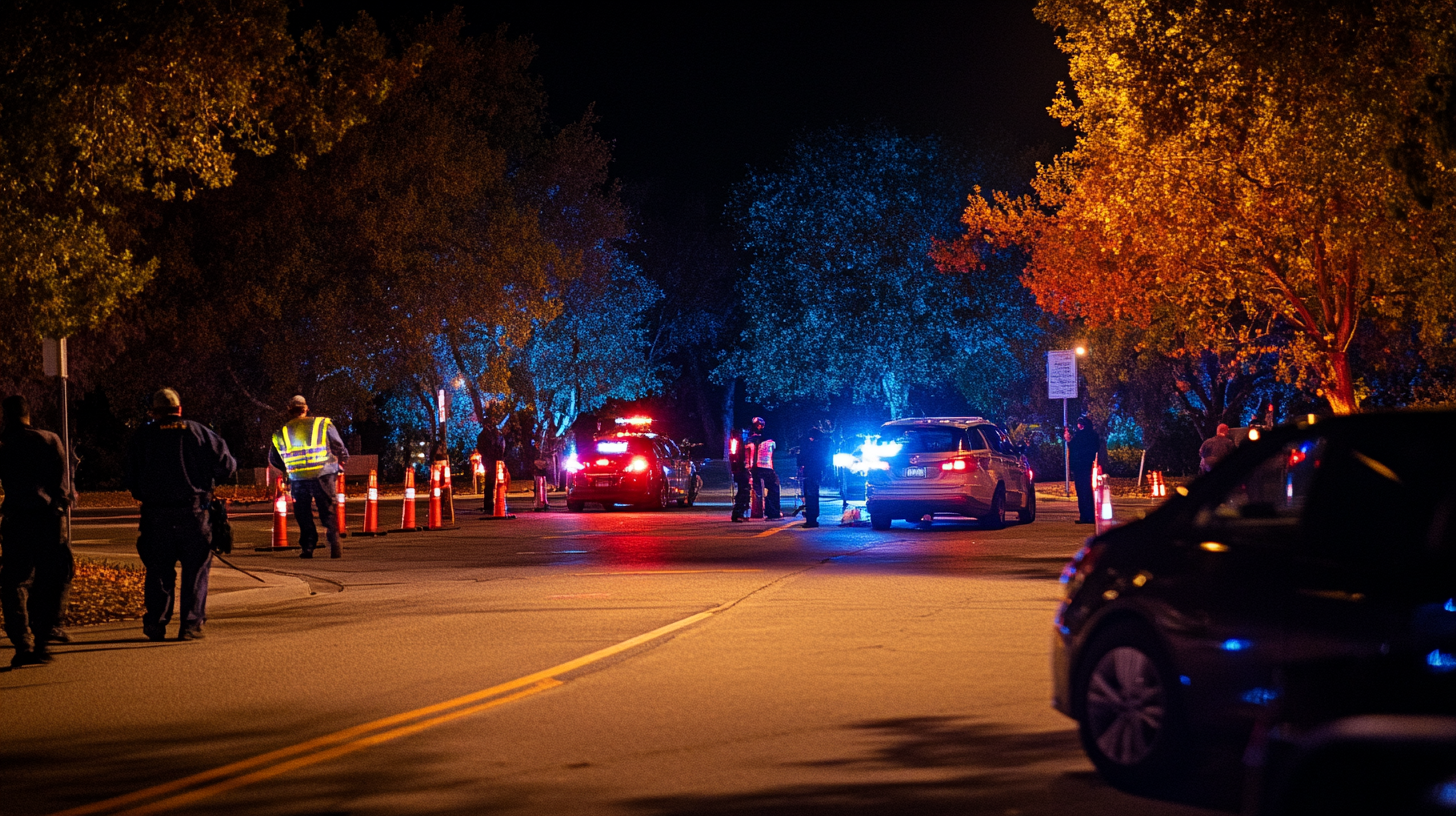How to Fight Breathalyzer and Field Sobriety Test Results in DUI Cases
Being charged with a DUI can be a life-changing event, leading to severe consequences such as loss of driving privileges, hefty fines, and even imprisonment. However, it’s important to understand that a DUI charge is not an automatic conviction. Many individuals mistakenly believe that failing a breathalyzer or field sobriety test leaves them with no defense options. Yet, there are numerous strategies that can be employed to challenge these test results, and in some cases, have DUI charges reduced or even dismissed.
In this article, we will delve into some of the most effective DUI defense strategies, particularly focusing on how to contest breathalyzer and field sobriety test results. Whether you’re facing a DUI charge in California or any other state, a firm grasp of these defense tactics can be pivotal in influencing the outcome of your case. Understanding the nuances of DUI defense can empower you to make informed decisions and potentially mitigate the repercussions of a DUI charge.
Understanding Breathalyzer Tests
Breathalyzer tests are a common tool used by law enforcement to determine a driver’s blood alcohol concentration (BAC) by analyzing a breath sample. Despite their widespread use, these devices are not infallible, and their results can be contested in court. The science behind breathalyzers is based on the principle that alcohol in the bloodstream is expelled in the breath at a certain ratio, but this assumption can be flawed under various circumstances.
Potential Inaccuracies of Breathalyzers
Breathalyzers can produce inaccurate results for several reasons, leading to potential wrongful charges:
- Calibration and Maintenance Issues: Like any piece of technical equipment, breathalyzers require regular calibration and maintenance to function correctly. If a breathalyzer has not been properly maintained, its accuracy can be compromised, leading to unreliable BAC readings. Documentation of maintenance schedules is crucial and can be requested during legal proceedings.
- Operator Error: The accuracy of a breathalyzer test is heavily dependent on the correct operation by law enforcement officers. Mistakes in administering the test, such as improper timing or failing to observe the subject before testing, can result in false readings. It’s essential to scrutinize the officer’s adherence to procedural standards.
- Medical Conditions: Certain medical conditions, such as acid reflux or diabetes, can cause a person to have alcohol-like substances in their breath, potentially affecting the results of a breathalyzer test. These conditions can lead to a false positive BAC reading, which can be challenged with appropriate medical documentation.
- Substances and Products: Everyday products like mouthwash or certain medications contain alcohol and can skew breathalyzer results if used shortly before the test. Understanding these influences is vital, as they can be presented as evidence to question the validity of the test results.
Challenging Breathalyzer Results
If you believe that a breathalyzer test was inaccurate, your attorney can take several steps to challenge the results and protect your rights:
- Request Maintenance Records: Your lawyer can request the breathalyzer’s maintenance and calibration history to identify any lapses that could have affected the test’s reliability. This information can be pivotal in demonstrating the potential unreliability of the device used.
- Examine Officer Training: Investigating whether the officer was properly trained to use the breathalyzer can uncover procedural errors. Proof of inadequate training or certification can weaken the prosecution’s case and bolster your defense.
- Present Medical Evidence: Providing evidence of medical conditions that could have affected the breathalyzer test can be a robust defense strategy. Expert medical testimony can support claims that physiological factors contributed to an inaccurate BAC reading.

Field Sobriety Tests: Are They Reliable?
Field sobriety tests (FSTs) are roadside assessments used by officers to gauge a driver’s level of impairment. These tests are often administered before a breathalyzer test and include a series of physical and cognitive tasks. However, FSTs are inherently subjective and can be influenced by a myriad of factors, making them a less reliable indicator of impairment.
Common Field Sobriety Tests
Some of the most common FSTs include:
- Horizontal Gaze Nystagmus (HGN): This test observes the involuntary jerking of the eye, which can be exaggerated by alcohol consumption. However, certain medical conditions and even the stress of the situation can cause similar eye movements.
- Walk-and-Turn: This test requires an individual to walk in a straight line, turn on one foot, and walk back. Coordination and balance are assessed, but external factors such as footwear and road conditions can influence performance.
- One-Leg Stand: In this test, the individual must stand on one leg while counting aloud. This test challenges balance and concentration, but anxiety and physical limitations can hinder performance.
Factors Affecting Field Sobriety Tests
Several factors can affect FST results, which can be highlighted to challenge their reliability:
- Physical Limitations: Injuries, disabilities, or even natural lack of coordination can make it difficult for individuals to perform these tests accurately. Documenting any physical conditions is essential in contesting the results.
- Environmental Conditions: External conditions such as slippery surfaces, poor lighting, and uneven ground can all impact a person’s ability to perform FSTs. These factors can serve as grounds for questioning the validity of the test results.
- Officer Bias: An officer’s preconceived notions about a driver’s impairment can lead to biased interpretations of FST results. Cross-examining the officer’s observations and questioning their objectivity can be a vital defense strategy.
Defending Against Field Sobriety Test Results
To challenge the results of FSTs, consider the following strategies:
- Highlight Physical Limitations: Providing medical records or expert testimony can demonstrate that physical conditions impacted your performance during FSTs, potentially leading to a more favorable interpretation of the results.
- Question Test Conditions: Discussing environmental factors, such as adverse weather or poor lighting, that may have impacted the test can cast doubt on the reliability of the FST results.
- Cross-Examine Officer Testimony: An experienced attorney can skillfully question the officer’s observations and conclusions, highlighting any inconsistencies or biases that may have influenced their assessment.
Legal Defenses in DUI Cases
In addition to contesting test results, there are several broader legal defenses that can be employed in DUI cases, which can be crucial in influencing the outcome of your case.
Lack of Probable Cause
Law enforcement must have probable cause to stop your vehicle and administer DUI tests. If an officer cannot demonstrate a valid reason for the traffic stop, any evidence gathered thereafter, including breathalyzer and field sobriety test results, may be inadmissible in court. Challenging the initial stop’s legality can be a powerful defense tactic.
Improper Arrest Procedures
If the arresting officer failed to follow proper procedures, such as neglecting to read your Miranda rights, this could constitute grounds for dismissing the charges. Procedural errors can undermine the prosecution’s case, and an attorney can meticulously review the arrest process to identify any deviations from protocol.
Rising Blood Alcohol Defense
This defense posits that your BAC was below the legal limit while driving but rose above the limit by the time the test was administered. This scenario can occur if alcohol was consumed shortly before being stopped, as it takes time for alcohol to be absorbed into the bloodstream. Expert testimony can be pivotal in explaining how BAC levels can rise over time, providing a credible defense against DUI charges.

DUI Forensics: A Closer Look
DUI forensics involves the scientific analysis of evidence in DUI cases, and understanding this aspect can be crucial in challenging its validity. The collection and analysis of forensic evidence must adhere to strict protocols to ensure accuracy and reliability.
Analyzing Blood Tests
Blood tests are often considered more accurate than breath tests, as they directly measure BAC levels. However, they are not immune to scrutiny. Factors such as contamination during collection, improper storage, or incorrect analysis can compromise blood test results. An attorney can examine the handling of blood samples to identify any breaches in protocol that could invalidate the results.
Hiring Expert Witnesses
Engaging an expert witness can be a game-changer in a DUI defense. These professionals can provide testimony on the reliability of test results and procedures, potentially exposing flaws in the prosecution’s case. Experts can challenge the accuracy of forensic evidence, offering alternative explanations for the results and strengthening the defense.
Seeking Legal Assistance
Defending against DUI charges requires a thorough understanding of the law and the ability to effectively challenge evidence. Hiring an experienced DUI attorney is crucial, as they can guide you through the legal process, identify weaknesses in the prosecution’s case, and advocate on your behalf. An adept attorney can navigate the complexities of DUI defense, ensuring that your rights are protected and working towards the best possible outcome for your case.
Conclusion
Facing a DUI charge can be daunting, but it’s important to remember that you have options for defending yourself. By challenging the results of breathalyzer and field sobriety tests and employing other legal defenses, you can work towards a more favorable outcome. Understanding the intricacies of DUI forensics and enlisting the help of a skilled attorney are crucial steps in protecting your rights.
Don’t let a DUI charge define your future. With the right strategy and legal support, you can fight back and seek the best possible resolution for your case. By proactively addressing the charges and exploring all available defenses, you can mitigate the impact of a DUI charge on your life and move forward with confidence.
Contact The Win Law Firm
If you or a loved one is facing DUI charges, don’t navigate this challenging situation alone. The experienced team at The Win Law Firm is here to help you understand your rights and explore your defense options. Contact us today for a consultation, and let us work together to build a strong defense strategy tailored to your case. Your future is important—take the first step towards protecting it now!
